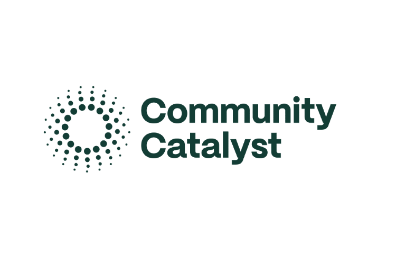The Dual Eligible Coalition

Committed to advancing federal policies that promote integration of care for individuals dually eligible for Medicare and Medicaid
About The Coalition
The Dual Eligible Coalition is a group of stakeholders including beneficiary advocates, managed care plans, provider systems, and behavioral health and social support service organizations that is informed by state advisors. The Coalition’s mission is to develop actionable, long-term policy and programmatic solutions to improve the delivery of care and outcomes for the dual eligible population.
The Coalition has been at work to assess the challenges and opportunities facing the dual eligible population and the stakeholders who work with and serve them. As states strive to improve care for their dual eligible populations, they require additional resources, as well as technical assistance in delivering integrated care to their dual eligibles in their state. The Coalition has developed a framework for fully integrating Medicare and Medicaid into a single program addressing medical, long-term care, behavioral, and social needs, and support efforts to enable states to increase integration.
In addition to developing the framework, the Coalition is working to increase awareness of the needs of dual eligibles among policymakers, and the need for resources and technical support for states who deliver care to dual eligible populations.
In conducting its work, the Coalition seeks to promote a set of principles around integration and whole-person care, including the following:

The Coalition’s framework was developed through Coalition members’ input and expertise, as well as a structured stakeholder outreach process in which Leavitt Partners facilitated more than 40 individual conversations with a wide array of diverse stakeholders across the health care community, including with policy experts, providers, advocates, associations, and foundations.

About the Coalition
- Dual Eligible Coalition and AIM Program Overview
- Dual Eligible Coalition: Integrated Program Financing
- Governor Leavitt: COVID-19 Shows Now Is The Time To Integrate Care For Dual-Eligible Beneficiaries
About Dual Eligible Beneficiaries
- Congressional & Administration Actions to Integrate Care for Dual Eligible Beneficiaries
- MedPAC-MACPAC Duals Databook
- CMS MMCO Office
Dual Eligible Coalition Letters of Support
- Dual Eligible Coalition Letter in Support of the Comprehensive Care for Dual Eligible Individuals Act
- Dual Eligible Coalition Letter in Support of the Supporting States in Integrating Care Act
- Dual Eligible Coalition Letter in Support of the Advancing Integration in Medicare and Medicaid (AIM) Act
- Dual Eligible Coalition Letter in Delivering Unified Access to Lifesaving Services (DUALS) Act
- Dual Eligible Coalition Legislative Endorsements
Contact Us
Interested in speaking with someone or learning more about the Dual Eligible Coalition? Fill out the form below and a member of our team will reach out soon.
The Opportunity to Improve Care
There are about 12 million dual eligible beneficiaries enrolled in both Medicare and Medicaid. This is a diverse population that includes people with multiple chronic conditions, developmental and physical disabilities, mental illness, cognitive impairments, and social needs.
- According to the Centers for Medicare and Medicaid Services (CMS), 41 percent of dual eligible individuals have at least one mental health diagnosis and 60 percent have multiple chronic conditions.
- More than half of dual eligible individuals qualify for Medicare on the basis of disability (51 percent) compared to only 15 percent of non-dual Medicare beneficiaries, and nearly half of duals have limitations in performing Activities of Daily Living (47 percent), compared to just 18 percent of non-dual Medicare beneficiaries.
- Dual eligible individuals experience socioeconomic disadvantages, with 57 percent of duals living below the federal poverty level and 45 percent reporting food insecurity.
- Dual eligible individuals tend to have a high level of medical care needs, compared to their Medicare-eligible, non-dual peers, as indicated by their share of program spending in both Medicare and Medicaid. Whereas duals made up 19 percent of beneficiaries in the Medicare program, 35 percent of Medicare spending was attributed to their care in CY 2021. Similarly, they made up 13 percent of Medicaid beneficiaries, but 27 percent of Medicaid spending.
Both MedPAC and MACPAC have raised concerns with how separate funding streams creates barriers to coordination of care and the extent to which lack of coordination increases costs and leads to poor health outcomes. Numerous researchers, health policy experts, states, and stakeholders have expressed interest in seeing more aligned incentives and integrated care to improve health outcomes and quality of care for dual eligible beneficiaries.
The Comprehensive Care for Dual Eligible Individuals Act
The Coalition proudly supports federal legislation that will meaningfully improve integration for dual eligibles.
- Comprehensive Care for Dual Eligible Individuals Act – This legislation provides states the option to develop an All-Inclusive, Integrated Medicare-Medicaid (AIM) Program, where states can—with robust CMS oversight—administer a single integrated program for full benefit dual eligible beneficiaries, such that beneficiaries would no longer have to navigate separate programs to meet their complex needs. The Coalition fully supports this legislation as a critical step for states to integrate program financing, administration, eligibility processes, and benefits to create the most comprehensive, integrated benefit possible for dual eligible beneficiaries with the most complex needs. This legislation incorporates the Coalition’s framework and policy recommendations on the creation of a single, integrated option for duals.
- DUALS Act – This legislation requires each state to select, develop, and implement a comprehensive, integrated health plan for dual-eligible beneficiaries. It permits states to create a new system or build on existing coverage options, and states are required to develop and update care coordination plans, establish an ombudsman office, and a care coordinator for each beneficiary. The legislation also creates a single appeals process for dual beneficiaries. The Coalition is supportive of the Senate Working Group’s ongoing efforts to develop comprehensive legislation to drive duals integration forward. The Coalition supports this legislation’s inclusion of a single appeals process, notification requirements for beneficiaries, and requirements for the establishment and funding of an ombudsman office responsible for assisting duals and their caregivers.
- AIM Act – This legislation requires states to develop a strategy to integrate and coordinate Medicaid and Medicare coverage for full-benefit dual eligible individuals, and include in the strategy the main integration approach, eligibility requirements, patient education and enrollment plan, patient choice protections, mental health benefit coordination, and data collection and measurement. The legislation would also require states submit the plan to HHS for review, approval, and continued evaluation over time. The Coalition supports this legislation as a measure that would spur state deliberation, planning, and innovations to better meet the needs of duals.
- Helping States Integrate Medicare and Medicaid Act – This legislation requires states to develop a strategy for Medicare and Medicaid integration, and provides funding for development of integration plans, in line with recommendations from the Medicaid and CHIP Payment and Access Commission (MACPAC). The legislation increases the federal match that states receive to 80 percent for administrative activities to support the implementation and advancement of these integration strategies and to finance the initial costs of building an infrastructure that is reflective of the needs and preferences of the local Medicare-Medicaid population. The Coalition supports this legislation as a step that will support states in a process to improve integration.










